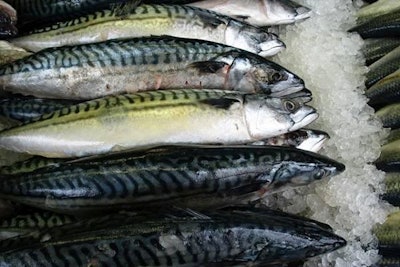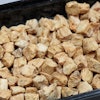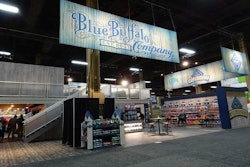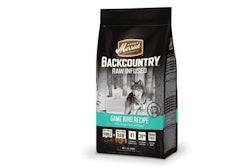
From Petfood Industry:
A recent article in the New York Times chronicled the lives of several men forced into labor on fishing boats in the South China Sea, off the coast of Thailand. These boats catch fish that are later shipped to the US and other places to be used in pet food and livestock feed.
Some of the fish caught on these boats is sent to a cannery called the Songkla Canning Public Company, which is a subsidiary of Thai Union Frozen Products, Thailand’s largest seafood company. According to US customs documents, more than 28 million pounds of seafood-based cat and dog food in the past year for brands sold in the US, including Iams, Meow Mix and Fancy Feast.
Thai Union Frozen Products says it “will not tolerate any human trafficking or any human rights violation of any kind,” and that it regularly audits its canneries and boats in port to ensure against forced and child labor.
Nestle, which makes Fancy Feast, says it is working hard to ensure that forced labor is not used to produce its pet food.
“This is neither an easy nor a quick endeavor,” a spokeswoman said, because the fish it purchases comes from multiple ports and fishing vessels operating in international waters.
Mars Inc. has replaced fishmeal in some of its pet food in an effort to use less fish. By 2020, the company plans to use only non-threatened fish caught legally or raised on farms and certified by third-party auditors as not being linked to forced labor. However, the company says the fishing industry has “real traceability issues” and that it struggles to ensure proper working conditions.
According to customs documents, in the past year, Mars received more than 90,000 cartons of dog and cat food from a cannery supplied by one of the boats mentioned in the NYT article.
The Thai government says it has increased its number of investigations and prosecutions and plans to continue doing so.
Your Pet Food May Have Been Made From Slave Labor
The New York Times has released a startling article titled “Sea Slaves,” detailing the horrific conditions that many workers face in the Thai forage-fishing industry. These types of small, inexpensive fish — jack mackerel and herring — are sold primarily to the United States for use in canned pet food and livestock feed.
The Ugly Truth Behind Your Pet's Food And Its Connection To Slave Labor
It's an unfortunate fact humans have not evolved to a point where they no longer engage in the abhorrent practice of slavery. Since the dawn of civilization, people have captured or coerced others and forced them into various forms of bondage and exploitation. In spite of all our societal and technological advancements, our species has yet [ ] The Ugly Truth Behind Your Pet's Food And Its Connection To Slave Labor.


















